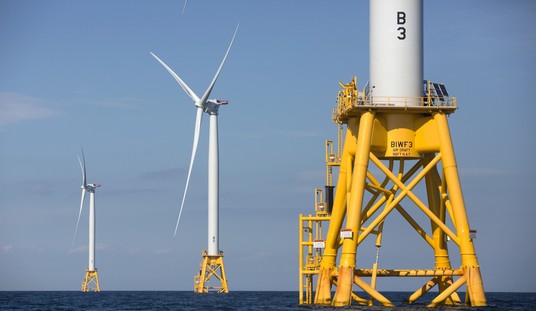A fracas over fracking in a Texas college town raises some significant questions about property rights, governance and who gets to decide what you can do with your land?
These questions arise regardless of your beliefs, or even of the facts, about hydraulic fracturing as a method of energy extraction.
The dispute is a novelty to The New York Times, because it’s in Texas.
Denton is just the latest, and unlikeliest, battleground in a movement that has gained momentum around the country. Communities from Colorado to Pennsylvania have imposed similar bans, and the state of New York has prohibited fracking since 2008. By all accounts, the antifracking campaign here has caught the gas companies and their supporters flat-footed.
On the surface, a voter referendum in Denton, Texas, seems like the essence of democracy, with the people petitioning their government for the redress of grievances by mustering a majority vote on the next election day.
But as you know, midterm election turnout tends to be even smaller than during a presidential year, so the number of ‘Yes’ votes required to gain a majority on a referendum will, in all likelihood, represent a small minority of local adults. That minority has the power to strip a person or company of property rights, along with the income that might have been generated by those rights, and the sustenance to local families and stockholders that income would have produced. But my questions persist even if there were a way to poll every adult citizen in Denton. Should “majority rule” on every issue?
Most folks are all for democracy in the abstract, less so when it bites their own bank accounts. Most folks are for more energy production in the abstract, but some lose their enthusiasm when they learn that the energy courses through creases a mile below their houses.
But who gets to decide what the landowner may do on his land?
The Framers of the Constitution had seen democracy unleashed, as mobs formed to demand their own property rights. The most famous, called Shays’ rebellion (1786-87), culminated in armed conflict, injuries and death over a tax protest during an economic crisis. In the Constitution, “we, the People” formed a republic — not a democracy — in large part to protect the rights of the minority from the passions of the mob.
The question here is not whether the people of Denton CAN vote to ban fracking: Until some court says differently, they can. The question is “Should they?”
If we are to be a nation of laws, not of men, that means that the structure of the law is as important as its content.
On a question like this, what’s the appropriate locus of control? At what level should such decisions be taken? Should the federal government have power to ban fracking? How about the state, the county, the municipality or township? Should “the people” be able to legislate by referendum at any and all of those levels? California doesn’t really have a Constitution, but rather a collection of voter referenda passed from time to time.
Perhaps you think you know the proper level for the decision in the fracking case. But on what basis shall we choose the appropriate level?
When I served as a county commissioner, a former Republican commissioner tried to push us to allow a referendum on an issue. I actually agreed with him that the practice he sought to prevent should be prevented. But I opposed a referendum to create the law because it’s an abdication by the county commissioners of their responsibility. Rather than be held accountable for such decisions, he sought to absolve the commissioners of the burden, and to hand the decisive power to a minority of local citizens who would constitute a majority on referendum day. The way those work out, it would be a turnout battle won by the best funded and/or best organized side of the question.
Did I wish to deny the power to the people? No. I believe they already possessed that power as expressed through their elected representatives.
Again, the structure of governance is crucial to the quality of governance, and therefore, to the security of liberty. Democratic referenda emit all of the aroma of individual rights, with none of the substance.
The Framers of the Constitution worried that mobs, whipped to frenzy by charismatic characters, could strip property rights, force governments and merchants to accept worthless paper for repayment of hard currency debts, and commit a welter of other evils.
The battle of Denton will likely go to the best-organized side, not necessarily to the most accurate, reasonable side.
I know from experience that the results of a referendum pass into sacred lore. The voters in my old county once passed a referendum to borrow $30 million for ‘green space’ during the succeeding 1o years. But to some folks, the fact that “the people had spoken” meant that the ‘green space’ programs should persist in perpetuity when the decade expired.
I don’t know the answer to all of these questions. What concerns me is how rarely someone asks these questions.








Join the conversation as a VIP Member